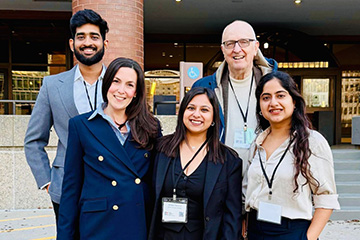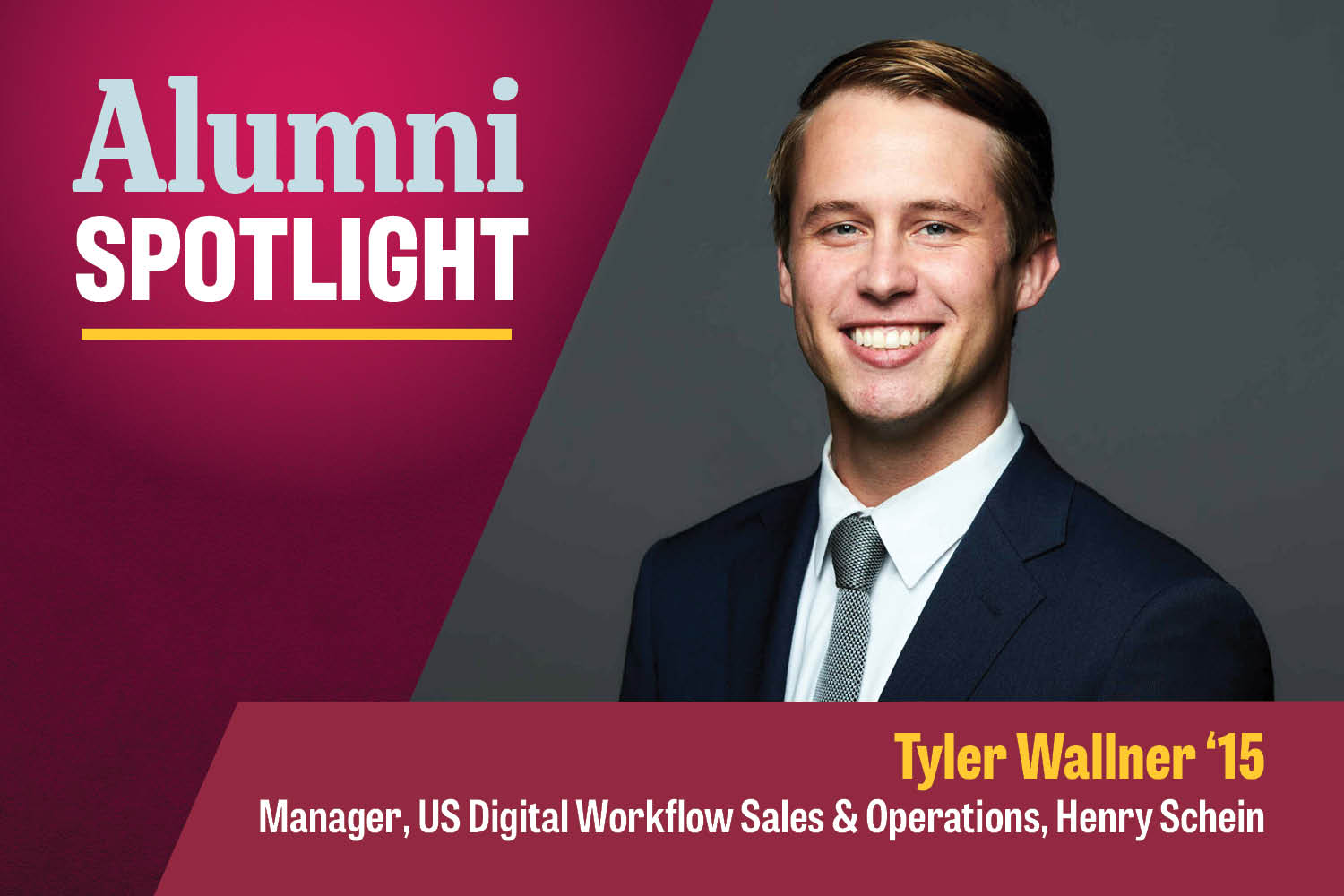Mentorship and the modern workforce: Jeff Hoyle helps Gen Z find their fit
Bridging research and real-world impact for the next generation of professionals
For today’s business students, preparing for the workforce isn’t just about mastering technical skills—it’s about finding the right environment to thrive. At Central Michigan University’s College of Business Administration, faculty members Hayam Alnakhli and Jeff Hoyle, both from the marketing, hospitality, and logistics department, are exploring this challenge through research. Their recent study examines how Gen Z professionals align with their work environments based on personality traits.
But research alone doesn’t drive change—mentorship does. Hoyle doesn’t just study workplace fit; he helps students and graduates discover it for themselves, guiding them through the complexities of launching and growing their careers.
Understanding Gen Z’s workplace preferences
Alnakhli and Hoyle’s article, “Is It a Good ‘Fit’? In Search of Gen Z Sales Talents Model of Person-Environment Fit”, recently published in the Journal of Selling, examines how Gen Z professionals interact with workplace structures through the lens of the Big Five personality traits—openness, conscientiousness, extraversion, agreeableness, and neuroticism.
One key takeaway? Gen Z places a strong emphasis on autonomy and flexibility in the workplace. This suggests that companies need to offer adaptive work environments to attract and retain young professionals.
“Gen Z is looking for purpose in their work,” Hoyle explained. “They’re not afraid to walk away from jobs that don’t align with their values.”
Recognizing these generational traits is important for business leaders as they shape their recruitment and retention strategies. But for students and young professionals, this research has another, more immediate application: understanding themselves. And that’s where mentorship makes all the difference.
More than research: The power of mentorship
Hoyle brings his research to life through his hands-on approach to mentorship, helping students and graduates translate academic insights into real-world decisions. He regularly stays in touch with former students, offering career advice and acting as a sounding board as they navigate the workforce.
He shared stories of graduates now working at LinkedIn, Plante Moran, and Medtronic—professionals who still reach out to him for guidance. Whether it’s helping a recent graduate find better work-life balance or providing reassurance during a career transition, Hoyle takes mentorship seriously.
For him, mentorship isn’t just about career advancement; it’s about building confidence.
“It’s about helping them understand who they are, where they want to go, and how to advocate for themselves in the workplace,” he said.
What employers need to know about Gen Z
As Gen Z enters the workforce in greater numbers, Alnakhli and Hoyle’s research offers crucial insights for businesses seeking to attract and retain top talent. By considering personality-driven preferences, employers can create workplaces where Gen Z employees thrive. This means:
- Fostering flexibility—creating adaptable workspaces, opportunities for continuous learning, and a culture that values diverse perspectives.
- Providing structure—offering clear guidelines that align with Gen Z’s preference for planning, organization, and systematic approaches.
- Encouraging social engagement—designing environments that support extroverted tendencies by emphasizing collaboration and positive energy.
- Prioritizing teamwork and communication—cultivating a workplace culture built on transparency, inclusivity, and mutual support.
- Supporting well-being—offering autonomy, mental health resources, and stress management programs.
But beyond what companies can do, Hoyle emphasizes what students can do for themselves. That’s where the real-world experiences gained through CMU’s College of Business Administration come into play. Through internships, class projects, and connections with faculty mentors, students don’t just prepare for jobs—they prepare to find the right fit.
Hoyle’s approach to mentorship mirrors this philosophy. He helps students navigate professional challenges long after they leave his classroom, offering the kind of guidance that goes beyond résumés and job titles.
“Finding the right fit isn’t just about landing a job—it’s about knowing what you need to succeed,” Hoyle said.
For CMU business students, that message is clear: with the right mentorship, career support doesn’t stop at graduation. It’s a lifelong conversation, shaping the next generation of business leaders one step at a time.




